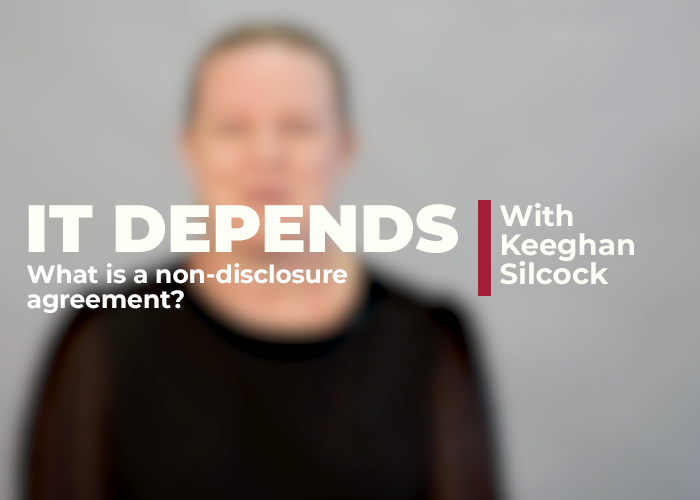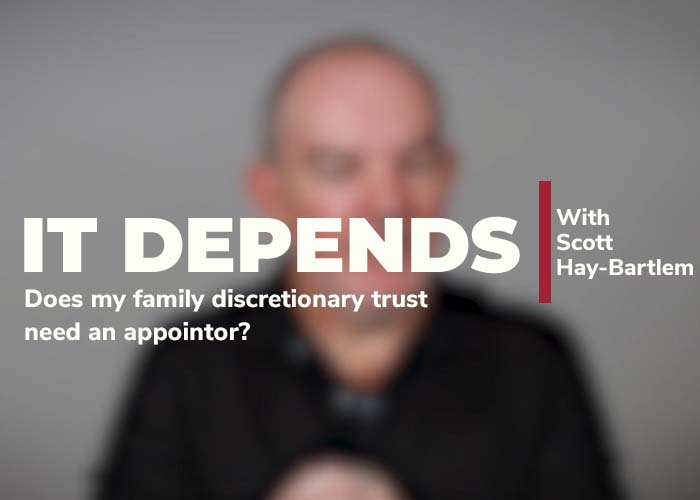Video transcript
Hi. My name’s Keeghan. Welcome to another edition of It Depends. Today, I’ll be talking about whether you need a non-disclosure agreement.
What is a non-disclosure agreement (NDA)?
So, a non-disclosure agreement is also known as an NDA or a confidentiality agreement. If you’re wanting to share sensitive information with someone else and you want them to agree not to share that information with anyone else themselves, then you can get them to sign an NDA. It’s an important document to sign before you share that information, otherwise you might lose the benefit of the sensitivity if they share it with someone else. The agreement can also include other terms, not just the non-disclosure of that information. So, you can have the agreement say that they can’t, for example, solicit employees of your business if they might become aware of those employees as a result of the information you share with them. You might also set out some of the steps or action that you could potentially take against them if they were to breach the non-disclosure rules so that you could seek an injunction preventing them from further breaches or for particular damages.
Do I need an NDA?
It depends. An NDA is a really important document. Like I said, if you’re wanting to share information with someone to prevent them from then sharing that information with other people. So, if you’ve not already entered into legal relations with a party, you don’t have any agreement on foot with them, they’re not an employee or an existing investor or an existing supplier. So, there’s no documentation, really there setting out the terms of your legal relationship. Then before you start sharing that sensitive information with them, we would recommend that you enter into an NDA. However, if you do already have a legal relationship in place. So, you’ve already got, for example, an employment agreement or something in writing with a third party that imposes confidentiality obligations on them, then you might not find that a separate NDA is necessary. We commonly see NDAs used where a person is looking to sell their business, for example, and before you start sharing sensitive information about your business with a potential buyer, you would want them to sign an NDA so that they can’t then share that information with anyone else. So, this is before you actually sign the contract to sell the business. Or similarly, if you’re wanting to bring in an investor to the business, you don’t have anything in already writing with them. There’s no sale documentation in place. You’d get them to sign an NDA. So, those are some really common examples of where you might want to put in place an NDA before you start those types of discussions or negotiations.
If you have any questions about the terms of an NDA that’s been put to you, or you’d like some assistance with drafting an NDA for yourself, please feel free to contact a member of our team.







